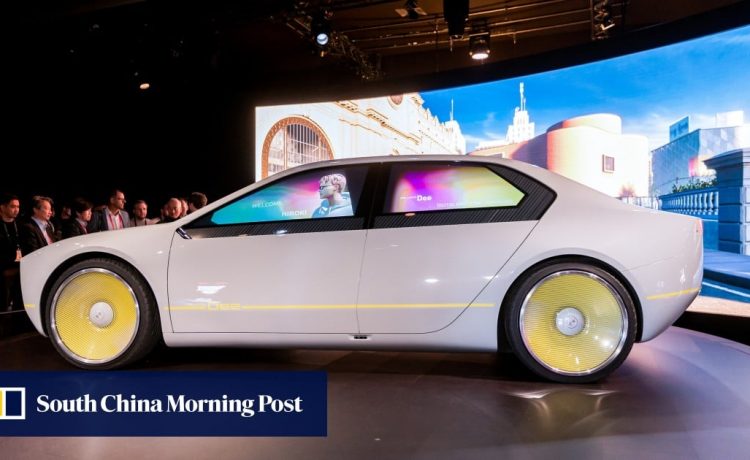“The growth may beat our expectations, buoyed by improved production efficiency and rising demand from clients,” he said.

Appotronics, listed on China’s Nasdaq-style Star Market in Shanghai, supplies laser headlights, fusion window display technology and in-car infotainment screens to EV assemblers.
Its technology enables smart EVs to display information on windows, such as the interior temperature and how far the owner is from a parked car.
Appotronics says it operates in a niche market, where it has no direct rivals yet.
“We believe that our company’s automotive-related business will outgrow the overall Chinese EV market, buoyed by people’s keen interest in digital cockpits,” Li said.
Appotronics posted a profit of 74.9 million yuan (US$10.5 million) in the first half of 2023, up 63 per cent year on year, as revenue fell 15.5 per cent to 1.07 billion yuan.
It reported revenue of 2.54 billion yuan (US$355 million) in the whole of 2022, an increase of 1.7 per cent from 2021, but net profit dropped 48 per cent to 120 million yuan.
In China, the world’s largest EV and automotive market, where sales of battery-powered cars represent about 60 per cent of the global total, young motorists are opting for intelligent electric cars while snubbing conventional oil-guzzling vehicles to echo Beijing’s call to reduce pollution on the roads.
China’s clean energy sectors were the biggest growth drivers of its economy in 2023: CREA
China’s clean energy sectors were the biggest growth drivers of its economy in 2023: CREA
Founded in 2006, Appotronics in 2007 unveiled its advanced laser phosphor display (ALPD) technology, which it claims to be the world’s smallest, brightest and most efficient laser light source technology.
In addition to cars, ALPD is also used in cinemas, consumer electronics and home projection systems.
Li said the company is pursuing opportunities abroad, where demand for intelligent EVs also appears to be growing rapidly.
“We are cautiously assessing the feasibility of building plants overseas,” he said. “Manufacturing efficiency must be carefully studied when clients invite us to localise production.”
China’s BYD overtakes Tesla as largest maker of pure-electric vehicles
China’s BYD overtakes Tesla as largest maker of pure-electric vehicles
Chinese vendors supply almost half of the world’s vehicle parts, contributing US$710 billion of the US$1.51 trillion global total in 2021, according to a report by Beijing-based Insight and Info Consulting released in February last year.
The country’s car-component makers also dominate the EV supply chain, accounting for more than three-quarters of the world’s production capacity for batteries, which make up around 40 per cent of a typical car’s price.
“Chinese supply-chain firms [in the automotive sector] have better chances of going global because some of their products prove to be unique worldwide,” said Cao Hua, a partner at Shanghai private-equity firm Unity Asset Management.
“But they will need to convince their clients that the products and technologies will be well received by drivers and passengers around the world in tandem with the transformation of the auto industry.”







